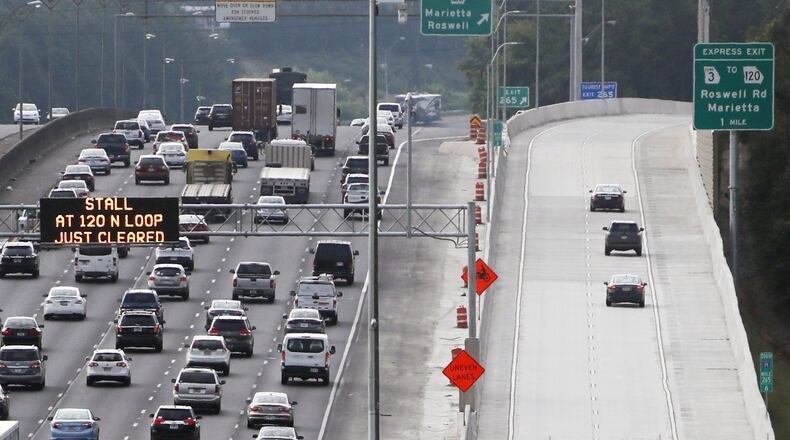Transit supporters in Cobb are likely to be younger, wealthier and more educated than transit skeptics. Meanwhile, the skeptics are more reliable voters — and angrier.
Those were some of the conclusions that came out of a transit planning meeting Thursday, during which elected officials, business leaders and residents dissected the findings of a survey of likely Cobb voters.
Although a majority polled favors transit expansion, “When you look at the opposition to transit, it’s more intense and a little more motivated than the support,” said Rob Schmidt, vice president of the company that produced the survey, McLaughlin & Associates.
“It’s easier to get upset about this issue than passionate about it,” he said. “The biggest determining factor is socioeconomic.”
The implications of the survey completed last month are that a Cobb transit tax referendum has the best change of passing in 2020, when the presidential election is expected to draw high voter turnout.
County Chairman Mike Boyce said he intends to use the time between now and then to build public support for a transit expansion referendum. He plans to hold as many as 16 town hall meetings in March to present voters with options and solicit feedback.
“I have confidence in the process,” said Boyce, comparing it to the series of town halls he held last year to build momentum for a property tax hike. “When they feel like they are part of the solution, they will work with you.”
Commissioner Bob Ott emphasized that it would all come down to the specific projects attached to the referendum.
The referendum “may be above water provided that the project list is correct,” Ott said.
Geographically, support for a transit tax and expansion of bus and rail was concentrated in the southeastern part of the county, particularly the Cumberland and Smyrna areas.
Residents in the west, farther out from Atlanta, were less supportive. Women and residents of District 4 in South Cobb were deemed “persuadable.”
Ultimately, however, it will likely boil down to turnout.
“In all cases, among the super voters”— those who vote in every election, even special elections and primaries — “opposition rises,” Schmidt said.
About the Author
Keep Reading
The Latest
Featured





